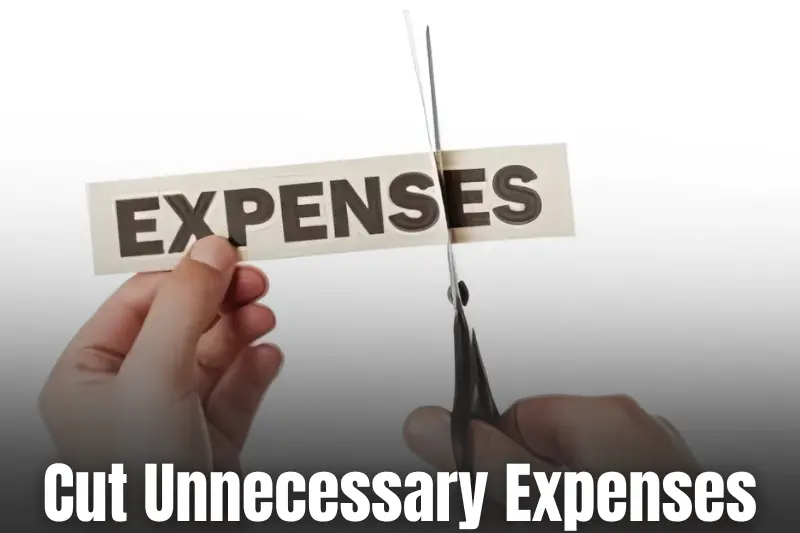Budgeting is one of the most effective ways to take control of your finances and secure a stable future. However, many people find the idea of budgeting overwhelming or complicated. The truth is, budgeting doesn’t have to be difficult. With the right approach, you can manage your money more easily and start saving for the things that matter.
In this article, we will share some easy budgeting tips that anyone can use, no matter their financial situation. Whether you’re looking to save for a vacation, pay off debt, or simply get a better handle on your spending, these easy budgeting tips will help you get started on the right track.
Set Clear Financial Goals

Setting clear financial goals is crucial for successful budgeting. When you define your goals, it becomes easier to manage your money and stay focused on your priorities. Here’s why setting goals is important:
- Short-Term Goals: These are goals you want to achieve in the next few months or a year. Examples include saving for a vacation or paying off a small debt. Short-term goals help you stay motivated and give you something to work towards.
- Long-Term Goals: These are goals you plan to achieve in the next few years. Examples include building an emergency fund or saving for retirement. Long-term goals provide direction and ensure your financial decisions align with your future needs.
- Track Your Progress: Having clear goals allows you to track your progress. As you make small, consistent changes to your spending and savings, you’ll be able to see how close you are to reaching your goals.
- Stay Focused: When budgeting, it’s easy to get distracted by non-essential purchases. Having clear goals in mind helps you stay focused on what really matters, making budgeting easier and more effective.
By setting both short-term and long-term financial goals, you can link your budgeting efforts to your desired outcomes, making it easier to stay on track and reach your financial targets.
You may also like it:
Personal Finance Guide: Tips for Financial Success
Smart Home Trends: Top Innovations for 2025
Tech Startup Tips: Key Steps to Launch Successfully
Easy Budgeting Tips: Track Your Spending
Tracking your spending is one of the easiest and most effective ways to manage your budget. When you know exactly where your money is going, it becomes much easier to control your finances. Here’s why tracking your spending is essential:
- Simple and Straightforward: Tracking your expenses doesn’t require complicated formulas or strategies. By simply recording every purchase, you gain insight into your financial habits.
- Use Budgeting Apps: Apps like Mint or YNAB (You Need a Budget) can help you easily track your spending. These apps categorize your expenses, so you can see where your money is going (e.g., groceries, entertainment, utilities).
- Identify Unnecessary Spending: By tracking your spending, you may notice areas where you’re overspending, like eating out or subscription services you don’t use. Recognizing these habits can help you make smarter financial choices.
- Control Your Budget: Once you understand your spending habits, it’s easier to cut back on non-essential items and redirect that money towards your goals, like saving for an emergency fund or paying off debt.
- Improve Financial Awareness: Awareness of where your money goes helps you make informed decisions. It also makes it easier to adjust your budget if you’re going over in certain categories.
By tracking your spending, you’ll have a clearer picture of your financial situation, and you can make better decisions that align with your budgeting goals.
Easy Budgeting Tips: Create a Realistic Budget
Creating a budget that fits your lifestyle is key to managing your money effectively. A realistic budget helps you stay on track with your goals while also allowing flexibility for unexpected expenses. Here’s how to create one:
- Start with the Basics: Begin by listing all of your monthly income (after taxes) and necessary expenses, like rent, utilities, groceries, and transportation. This will give you a clear picture of your financial situation.
- Use the 50/30/20 Rule: This simple method divides your income into three categories:
- 50% for Needs: This includes essentials like housing, utilities, groceries, and healthcare.
- 30% for Wants: These are non-essential expenses like dining out, entertainment, and shopping.
- 20% for Savings & Debt: Use this portion for saving or paying down debt, like building an emergency fund or contributing to retirement accounts.
- Keep It Flexible: Life can be unpredictable, so it’s important that your budget allows for flexibility. If an unexpected cost arises (like a car repair or medical bill), adjust other categories to accommodate it. For example, you might reduce spending on entertainment or dining out for the month.
- Track and Adjust: Regularly track your spending to ensure you’re sticking to your budget. If you find you’re overspending in certain categories, make adjustments by cutting back on less important items.
- Prioritize Financial Goals: Make sure your savings and debt payments are always a priority. If you have to cut back in some areas, consider reducing spending on “wants” before you impact your “needs” or savings.
By following these simple steps and using methods like the 50/30/20 rule, you’ll create a realistic budget that helps you manage your money without feeling overwhelmed.
Cut Unnecessary Expenses

Cutting unnecessary expenses is one of the most effective ways to boost your savings and stick to your budget. Here’s how to identify and reduce these costs:
- Review Subscriptions: Many people forget about recurring subscription services like streaming platforms, gym memberships, or magazine subscriptions. Go through your subscriptions and cancel any that you no longer use or need.
- Limit Impulse Buys: Impulse purchases can quickly add up. Before making a purchase, ask yourself if it’s something you truly need. Implement a 24-hour rule—wait a day before buying non-essential items to avoid impulse spending.
- Cut Back on Dining Out: Eating out too often can eat into your budget. Instead of dining out, try cooking at home. Plan meals in advance, and when you do eat out, look for deals or opt for less expensive restaurants.
- Reduce Energy Costs: Simple changes at home, like turning off lights when not in use, unplugging electronics, and adjusting your thermostat, can lower your utility bills without sacrificing comfort.
- Evaluate Your Transportation Costs: If you drive frequently, consider alternatives like public transportation, carpooling, or walking. These small changes can save money on gas, parking, and maintenance.
- Shop Smart: Take advantage of sales, use coupons, and buy in bulk when it makes sense. Always compare prices before making a purchase to ensure you’re getting the best deal.
- Find Cheaper Alternatives: Look for more affordable alternatives for things you regularly purchase, like switching to a less expensive brand or finding free entertainment options.
By making small changes like these, you can significantly reduce unnecessary expenses, allowing you to put more money towards your savings goals or debt repayment. Even cutting back on small daily costs can have a big impact over time.
Build an Emergency Fund
Having an emergency fund is crucial for financial stability. It helps protect you from unexpected expenses, such as medical bills, car repairs, or job loss. Here’s how to build this fund, even if you can only start small:
- Why It’s Essential: An emergency fund acts as a financial safety net. Without it, unexpected expenses can lead to debt or financial stress. It gives you peace of mind knowing you’re prepared for life’s uncertainties.
- Start Small: Even if you can only save a small amount each month, it’s important to start. A little bit adds up over time. Set aside a manageable amount (e.g., $50 or $100) each month to build your emergency fund.
- Automate Savings: To make saving easier, set up automatic transfers to a separate savings account each payday. This way, you won’t forget or be tempted to spend the money elsewhere.
- Set a Realistic Goal: Your emergency fund goal should reflect your personal needs. A good starting point is saving 3 to 6 months’ worth of living expenses. If this feels too ambitious, aim for a smaller goal, like saving $500 or $1,000, and gradually build from there.
- Cut Back on Non-Essentials: Look for ways to cut back on unnecessary spending (like dining out or impulse buys) to free up extra money for your emergency fund.
- Track Your Progress: Keep an eye on your savings to stay motivated. Celebrate milestones, no matter how small, to stay focused on your goal.
By building an emergency fund, you’re protecting yourself against financial setbacks and ensuring that you have money available when unexpected expenses arise. Even small, consistent contributions can lead to a solid financial cushion over time.
Automate Your Savings
Automating your savings is a powerful tool that simplifies budgeting and helps you consistently reach your financial goals. Here’s how automating your savings can make budgeting easier:
- Saves Time and Effort: By setting up automatic transfers, you don’t have to remember to move money to your savings account each month. This removes the need for manual effort and ensures you save without thinking about it.
- Set It and Forget It: Once set up, automated savings happen automatically, ensuring you never forget to save. This makes it easier to stick to your budget and reach your savings goals consistently.
- Helps with Consistency: Automating savings creates a habit, helping you stay disciplined. You pay yourself first before spending on anything else, which is an important principle of effective budgeting.
- Automatic Transfers: Set up automatic transfers from your checking account to a savings account every payday. Choose a specific amount that you can afford, whether it’s $50, $100, or more. This way, savings become a regular part of your routine.
- Psychological Benefit of “Out of Sight, Out of Mind”: When money is automatically transferred to a savings account, it’s less tempting to spend it. The psychological benefit is that you don’t see the money in your checking account, so you’re less likely to spend it impulsively.
- Focus on Your Goals: With automatic savings, you’re more likely to focus on your financial goals rather than constantly thinking about saving. This reduces stress and helps you stay on track.
By automating your savings, you can ensure that you’re consistently setting money aside without extra effort. This helps you stick to your budget and make progress towards your financial goals.
Conclusion
Budgeting doesn’t have to be hard. By setting clear goals, tracking your spending, and making small changes like cutting unnecessary expenses or automating your savings, you can take control of your finances. Start with simple steps, stay consistent, and watch your savings grow.
Remember, every small effort adds up over time and can lead to big financial improvements. Start today and build a stronger, more secure future!
FAQs
What is a budget and why is it important?
A budget helps you plan how to spend your money. It’s important because it helps you save, avoid debt, and reach your financial goals.
How do I start budgeting if I’ve never done it before?
Start by tracking your income and expenses. Set clear goals and create a budget based on your needs and wants. Start small and adjust as needed.
How much should I save each month?
It depends on your income and goals. Even saving a small amount, like $50 or $100 a month, can make a big difference over time.
How can I track my spending easily?
You can use apps like Mint or YNAB to track your spending. These apps automatically categorize your expenses and show where your money is going.
How do I cut unnecessary expenses?
Look for subscriptions you don’t use, limit impulse buys, and cut back on dining out. Even small changes can add up and save you money.
What’s the best way to build an emergency fund?
Start small by saving a little each month. Set a realistic goal, like $500 or $1,000, and gradually increase it as you go. Automate your savings to make it easier.
Can I automate my savings?
Yes! You can set up automatic transfers to a savings account each payday. This makes saving easy and ensures you don’t forget to save.
How do I stay motivated to stick to my budget?
Set clear goals, track your progress, and reward yourself when you reach milestones. Keeping your goals in mind will help you stay on track.
You may also like it:
Saving Money Tips for Students: Master Your Finances Now!
Startup Marketing Strategies: Boost Your Business Fast







